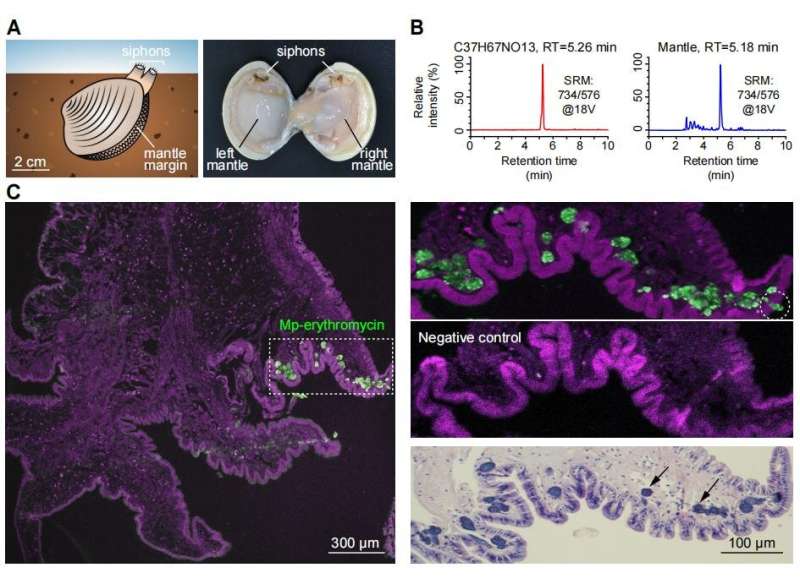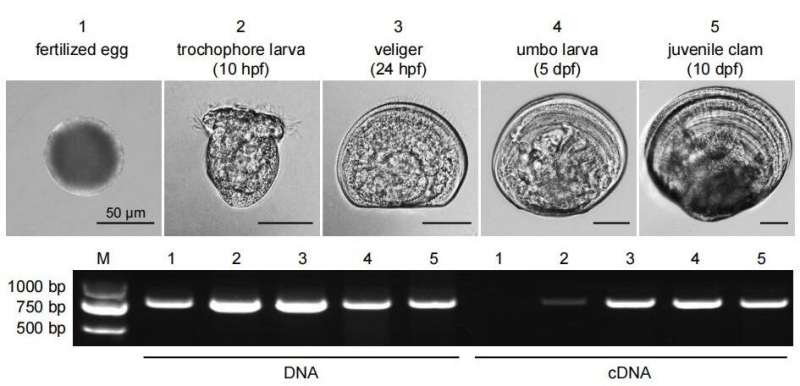Asiatic hard clams can synthesize antibiotics

Clams and other invertebrates often live in habitats with dense bacterial populations, despite lacking adaptive, lymphocyte-based immune systems. How clams resist bacterial pathogens in the environment is unclear.
Recently, a research team led by Prof. Liu Baozhong from the Institute of Oceanology of the Chinese Academy of Sciences (IOCAS) and their collaborators reported the secretion of a potent antibiotic by mud-dwelling clams for the first time.
The study was published in PNAS on Nov. 29.
The researchers found that Asiatic hard clam, Meretrix petechialis, which lives in mud flat environment can synthesize, store, and secrete the antibiotic erythromycin.
Based on liquid chromatography, mass spectrometry, and immunocytochemistry, they determined that erythromycin was secreted in the protective, outer mantle tissue of M. petechialis. Then, they used staining and electron microscopy to characterize specialized mucous cells in the mantle that produced and stored erythromycin. The results of bacteriostatic assays confirmed the antibacterial activity of M. petechialis mucus.
The synthesis of erythromycin was previously thought to only be produced by bacteria. "However, our results suggested that the erythromycin-producing genes in M. petechialis have an origin in animal lineages and represent convergent evolution with bacteria," said Prof. Liu.

"We also documented erythromycin production in a related species, Meretrix lyrate, which suggests that the antibiotic may be more widely produced by marine invertebrates," said Yue Xin, first author of the study.
These findings provide new insights into the understanding of environmental adaptation and immune defense mechanisms in invertebrates, as well as new ideas for healthy farming and resistance breeding of economic mollusks.
More information: Xin Yue et al, The mud-dwelling clam Meretrix petechialis secretes endogenously synthesized erythromycin, Proceedings of the National Academy of Sciences (2022). DOI: 10.1073/pnas.2214150119
Journal information: Proceedings of the National Academy of Sciences
Provided by Chinese Academy of Sciences





















